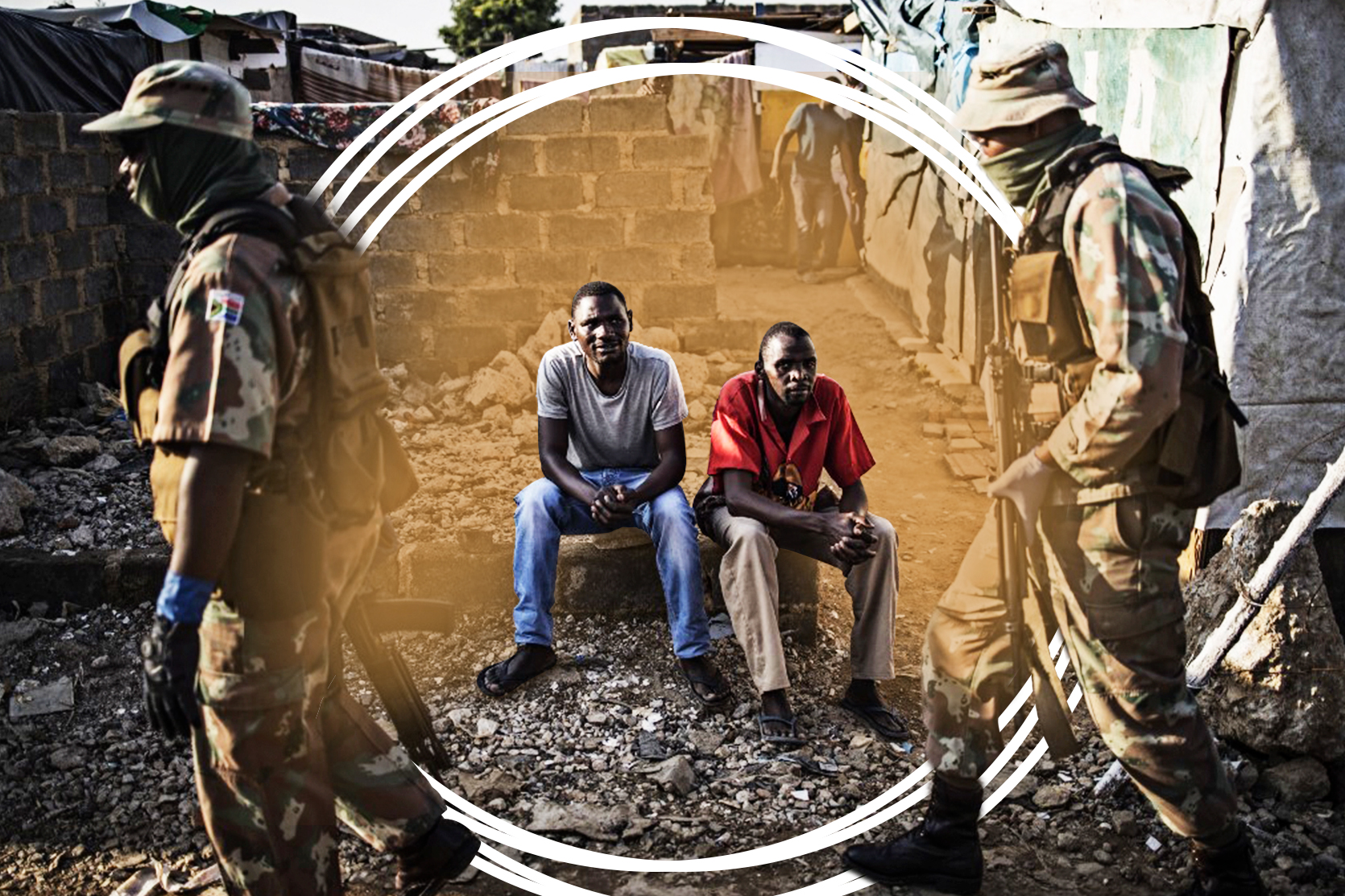
Disaster regulations declared unconstitutional
The tenth of April 2020 was a warm autumn day, and Collins Khosa, 40, was sitting in his yard at his home in the Far East Bank of Alexandra township in northern Johannesburg, enjoying a glass of beer. But then South African National Defence Force members tasked with enforcing the lockdown found him.
When the government declared a lockdown on 27 March – under a declaration of disaster, rather than a state of emergency – it introduced additional measures, among them a total ban on the sale of alcohol and cigarettes. What happened next would lead to Khoza’s death and heighten concerns of the fragility of law and order in the country, under pandemic conditions.
What happened next would lead to Khoza’s death and heighten concerns of the fragility of law and order in the country.
Khoza was sitting in his own yard. However, his brother-in-law Thabiso Muvhango was with him. Within minutes, Khoza and Muvhango were being accused of violating the lockdown.
Additional soldiers were called and beers confiscated from the house. Witnesses say an argument ensued when one of the soldiers slammed the garden gate on Khosa’s car. An Independent Police Investigative Directorate (IPID) report quoted witnesses who said the soldiers said they wanted to “prove a point” and “deal with” Khosa and Muvhango because they had “an attitude”. The report also found that five metro [city] police officers had failed to intervene.
Witnesses claimed the soldiers poured beer on the two men and held Khosa’s hands behind his back while they choked him, slammed him against a cement wall, hit him with the butt of a rifle, and kicked, slapped and punched him. But an SANDF board of inquiry exonerated the soldiers and said “the force used was pushing and klapping [slapping]”, and intended to get the men to go into the house. (From the reports, it appears that the soldiers thought that they should be inside the house.) It also claimed that “Mr Khosa was conscious and healthy when the security forces left”.
Witnesses claimed the soldiers poured beer on the two men and held Khosa’s hands behind his back while they choked him, slammed him against a cement wall, hit him with the butt of a rifle, and kicked, slapped and punched him.
North Gauteng High Court Judge Hans Fabricius found otherwise. Referring to the founding values in section 1 of the Constitution, which include the rights to human dignity and equality, as well as the supremacy of the constitution and the rule of law, the judge ordered the immediate suspension of the soldiers and ordered a proper investigation of the incident.
The court noted that people need to be able to trust the government to abide by the rule of law, make rational regulations, and not intrude on the rights of those subject to the law. It was, in many ways, a turning point for South Africa. The country was paralysed by fear and succumbing to a willingness – until then – to tolerate curtailments of personal liberties and of the rule of law in the interests of the greater good.
The court noted that people need to be able to trust the government to abide by the rule of law.
Khosa was not the only person to be assaulted. There have been at least 11 deaths at the hands of security forces. Meanwhile, there have been numerous reports of people on their way to the shops being subjected to arbitrary humiliations by members of the security forces, including being forced to do push-ups, and of women being manhandled.
Following the tragedy of Khoza’s death, which was widely reported, the country saw a growing pushback against the lockdown. By late May, Minister of Police Bheki Cele reported almost 230,000 cases for contraventions of lockdown regulations. In addition, cases of gender-based violence have also increased.
There have been at least 11 deaths at the hands of security forces.
“If the country doesn’t get this right, it’s not going to win the fight against COVID-19,” wrote Cathleen Powell, Associate Professor in Public Law, University of Cape Town. The confusion, resistance and violence accompanying the current lockdown are an object lesson on the value and necessity of the rule of law, she said.
But South Africans find refuge in their courts, as the pushback against state capture has shown. From the start of the lockdown there were court applications against aspects of the lockdown – the first, in week one, by a private citizen who wanted exemption from the travel prohibition to attend a funeral.
Since then, a queue of individuals, non-governmental organisations, faith-based organisations, business groups and, of course, political parties have marched to the courts. Their applications have ranged from questioning the ban on alcohol and tobacco to those wanting to prevent the re-opening of schools.
President Cyril Ramaphosa says he welcomes these court challenges as a natural function of democracy.
President Cyril Ramaphosa says he welcomes these court challenges as a natural function of democracy.
It is not unusual to excuse excesses of law in the name of security. South Africa’s constitution is the ultimate arbiter and it recognises the possibility of suspending the law in conditions of emergency. But our history is reflected in the constitution, which means that the president has only limited powers to suspend the normal rule of law, and these can only occur during a state of emergency under Section 37 of the Constitution. Even then, the purpose of any such suspension must be to restore “peace and order”.
But, as noted, we are not in a state of emergency, but operating under a declaration of disaster. And a high court has found that “an overwhelming number of regulations” promulgated under the state of disaster are “unconstitutional and invalid”.
Should individual rights be trumped by a public health emergency? After all, the right to life is a paramount individual right. Surely anyone would be willing to give up some rights for the right to life? We have already given up our right to freedom of movement, assembly and trade. Section 36 of the constitution makes it clear that laws restricting individual rights should be proportional to the harm identified. And any measures they include must be carried out in a way that does not encroach on other rights.
Should individual rights be trumped by a public health emergency?
While issues relating to the implementation of the lockdown have caused concern, so too has the way in which the lockdown is being managed. Commentators have questioned a blurring of legal lines, given that the National Coronavirus Command Council has effectively been governing in the place of a constitutionally mandated cabinet.
President Ramaphosa has largely framed South Africa’s response in terms of constitutionally guaranteed rights – particularly the right to life, dignity and access to health care. The president has so far done well in terms of rule of law, writes Mark Heywood, editor of Maverick Citizen, an online news publication focusing on human rights and a former director of Section27, a public interest law centre.
But the SANDF’s apparent readiness to condone deadly violence by its members raised a red flag. Whether the government comes down on “the right or wrong side of human rights”, as Heywood puts it, remains to be seen.
We’d love to hear from you! Join The Wicked Conversation by leaving your comments below, or send your letter to the editor to richard@gga.org.
Paula Fray is a leading media trainer and coach who works across Africa and the Middle East. The former regional director for Inter Press Service Africa, she is the CEO of the pan-African communications company frayintermedia, which has worked to improve the quality of journalism in Africa since 2005.


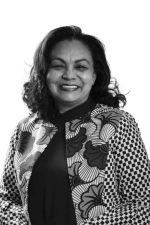
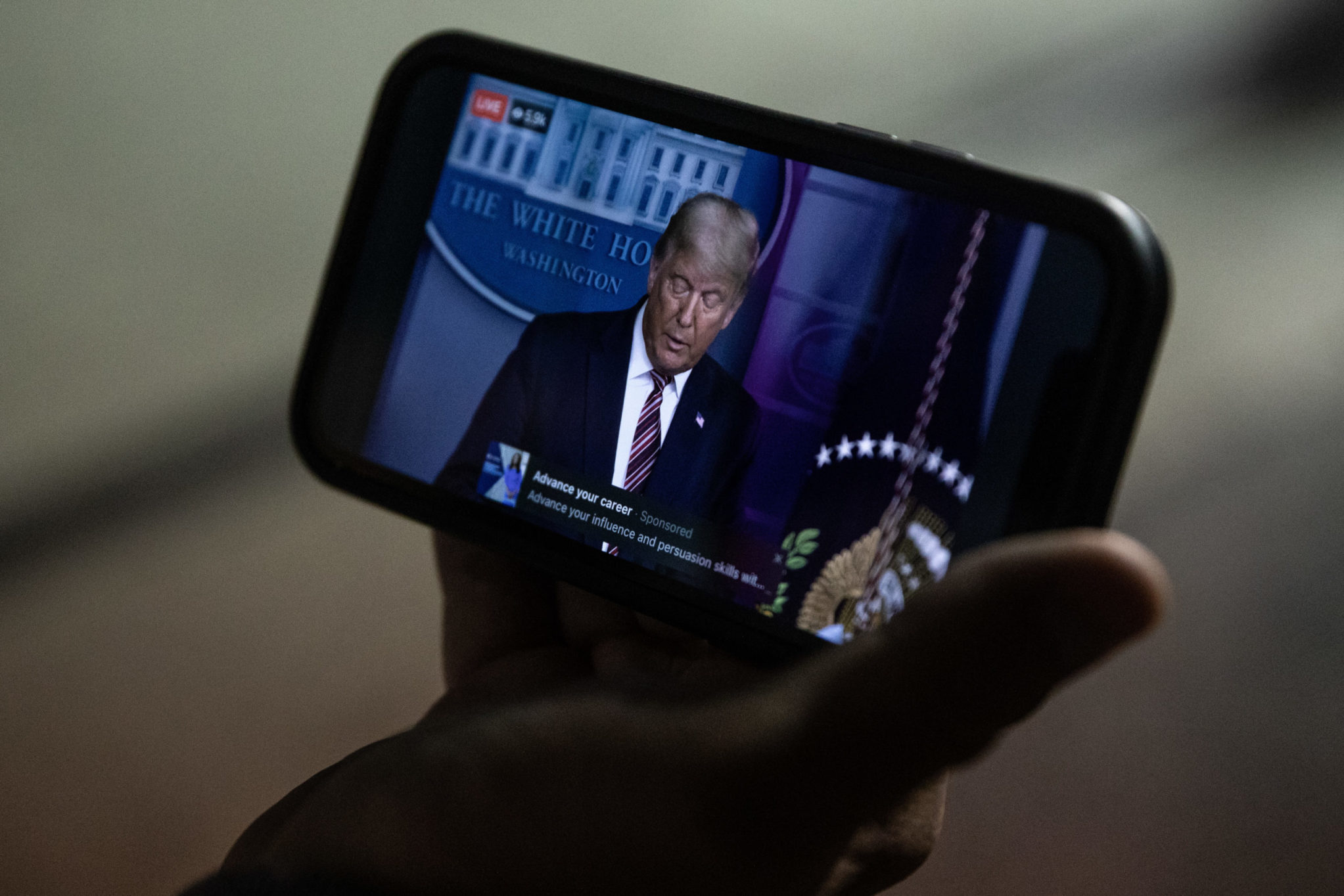
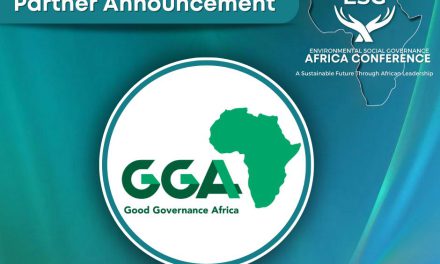
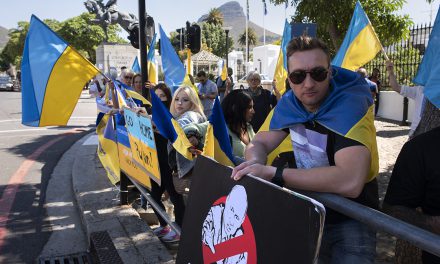
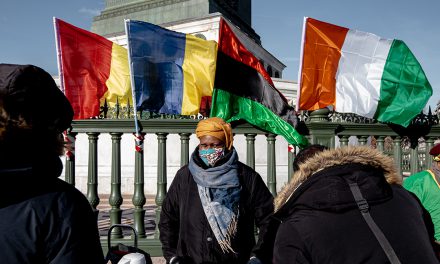


For your records sir, many families in Nigeria also lost their relatives during this period of pendamic also as a result of police brutality.
Dear Justice,
Many thanks for your response.
That is indeed the purpose of this blog series – to stimulate exchanges of analysis, ideas and observations about the pandemic around Africa. The point is well taken. Our writer in Abuja, Adie Vanessa Offiong, focused on repression of the media in Nigeria, which is also a matter of deep concern and there and elsewhere. Observations such as yours will be included in our newsletters, which will unfold a developing picture of the impact of Covid-19 in Africa over the next two months.